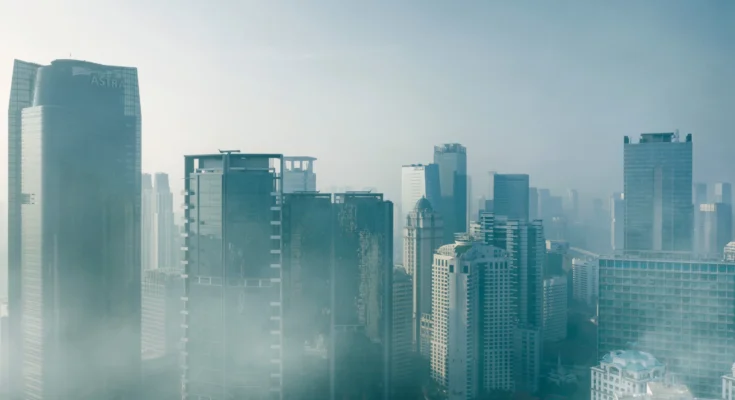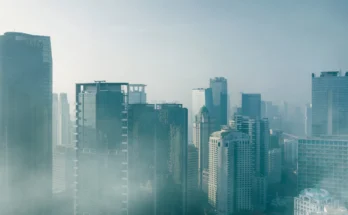On August 19, 2025, Jakarta was officially ranked among the top 10 most polluted cities in the world, according to the latest air quality report.
The capital of Indonesia recorded an Air Quality Index (AQI) well above safe levels, sparking widespread concerns about public health, climate change, and urban planning in one of the world’s most densely populated cities.
Pollution Levels in Jakarta
-
AQI exceeded 180, classified as “Unhealthy.”
-
Fine particulate matter (PM2.5) levels were nearly 7 times higher than World Health Organization (WHO) guidelines.
-
Morning smog and haze blanketed the city, reducing visibility and affecting transportation.
Health Risks
Doctors and environmentalists warn that continued exposure to such high pollution levels can cause:
-
Respiratory illnesses (asthma, bronchitis)
-
Cardiovascular diseases
-
Increased mortality risks for children and the elderly
Hospitals in Jakarta reported a 20% rise in respiratory cases over the past two weeks, directly linked to air pollution spikes.
“We are facing a public health emergency. Immediate action is needed to protect vulnerable groups,” said Dr. Rina Kartika, pulmonologist at Jakarta General Hospital.
Causes of Pollution in Jakarta
-
Vehicle Emissions: Over 20 million vehicles contribute heavily to daily smog.
-
Coal Power Plants: Several facilities around the city add to air pollution.
-
Industrial Activities: Manufacturing hubs around Jakarta release toxic emissions.
-
Urban Congestion: Poor infrastructure amplifies pollution from traffic.
Government Response
The Indonesian government has pledged action, including:
-
Expanding electric bus fleets in the capital.
-
Accelerating the transition to renewable energy.
-
Tightening industrial emission standards.
-
Promoting remote work on high-pollution days.
However, critics argue that enforcement remains weak and policies are too slow to match the urgency.
Regional & Global Context
-
Other Polluted Cities: Delhi, Dhaka, Lahore, and Karachi also featured in the world’s top 10 list.
-
Climate Change Link: Rising global temperatures and wildfires in Southeast Asia are worsening air quality.
-
Global Health Issue: The WHO estimates that 7 million people die annually from air pollution-related causes worldwide.
Public Response
-
Schools in some districts advised parents to keep children indoors.
-
Face masks are once again becoming common in public spaces.
-
Environmental NGOs are pressing the government for stricter anti-pollution measures.
Conclusion
Jakarta’s inclusion in the top 10 most polluted cities in the world is a stark warning about the urgent need for sustainable urban planning, cleaner energy, and stronger enforcement.
Unless swift action is taken, millions of residents will continue to face serious health risks and reduced quality of life.
FAQs
Q1: What is Jakarta’s current AQI?
It was above 180 on August 19, 2025, considered “Unhealthy.”
Q2: What causes Jakarta’s high pollution levels?
Mainly vehicle emissions, coal power plants, and industrial activity.
Q3: How is the government responding?
Through renewable energy expansion, electric buses, and stricter emissions standards — though critics say progress is too slow.
Q4: What are the health risks of this pollution?
Respiratory illnesses, cardiovascular problems, and higher mortality among vulnerable groups.


